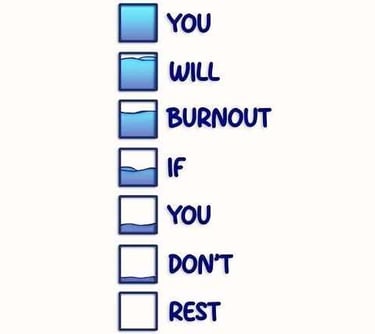Physical Health
What one may say about physical health in connection to a white lie?
"I Feel Fine"
Masking discomfort: The person might actually have pain, fatigue, or other symptoms but downplays them to avoid worrying others.
Social politeness: People often say they’re fine when they don’t want to go into detail or feel it’s not the right time/place to explain.
Protecting themselves: They might not want to acknowledge or confront their own health issue yet.
Avoiding help or attention: Saying “I feel fine” can be a way to sidestep being fussed over, asked follow-up questions, or urged to see a doctor.
It’s one of the most common health-related white lies, sitting in the same family as “It’s just a headache” or “I’ll be okay tomorrow.”
"I'LL Go To The Doctor If It Gets Worse"
Avoidance: The person may already suspect something is wrong but doesn’t want to face the possibility of bad news.
Minimizing symptoms: They might already feel unwell but convince themselves (and others) that it’s not serious enough yet.
Reassurance: It calms down concerned friends or family without requiring immediate action.
Control: It gives the illusion they’re “managing” their health, even though they’re postponing real care.
Fear / cost / inconvenience: Sometimes it’s really about avoiding expenses, long wait times, or anxiety about medical tests.
It’s a way of delaying responsibility while keeping up the appearance of being sensible.




"It's Normal"
Often used to downplay or normalize discomfort, especially when someone doesn’t want to draw attention to their pain.
It can be said to others (“Don’t worry, it’s normal”) or to oneself (“This pain is normal for me”).
As a white lie
Minimizing concern: Saying “it’s normal” avoids worrying family, friends, or coworkers.
Deflecting questions: It can stop further probing into one’s health.
Self-protection: Sometimes people use it to reassure themselves, even if the pain might need medical attention.
Cultural/age factor: Many older people, for example, dismiss aches as “just normal for my age,” which isn’t always accurate.
Risks of this white lie
Delayed care: Pain that’s brushed off as “normal” could be a sign of something treatable or serious.
Isolation: Others may never understand the extent of suffering if it’s constantly minimized.
Emotional toll: Convincing yourself “this is normal” can lead to resignation instead of seeking help.
👉 So, while “It’s normal” might feel like a harmless white lie to smooth over social situations, in the context of chronic pain it can sometimes be dangerous, because it discourages seeking support or medical evaluation.
"I'll Just rest later"
People use it when they’re exhausted or burned out, but don’t want to admit they need rest now.
It’s a way of postponing rest in order to push through work, social obligations, or family responsibilities.
As a white lie
To others: It reassures people (boss, partner, friends) that the exhaustion isn’t serious, that the person is still capable of carrying on.
To oneself: It’s self-deception — convincing yourself you’ll make time for rest later, even if you know deep down you probably won’t.
Risks of this white lie
Ignoring signals: Resting later may never happen, and the body stays in a state of overexertion.
Snowball effect: Leads to burnout, worsened physical fatigue, or even illness.
Masking needs: Others don’t realize how tired you actually are, so support or adjustments never come.
👉 In short, “I’ll just rest later” is a socially acceptable way of downplaying exhaustion — but it’s risky because it normalizes overwork and neglects real physical limits.




White LIES
Exploring the impact of white lies on men. Physical health. Mental health - Personal and Business
Go to Im Just A Man 9 Event - The White Party, The White Lies, Saturday 29th November
Truth
Vulnerability
+61406730911
© 2025. Im Just A Man Foundation. All rights reserved. Proudly supported and sponsored by Melbourne Chropractic and Bedding Clinic.
